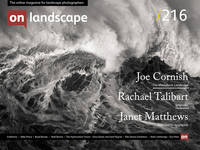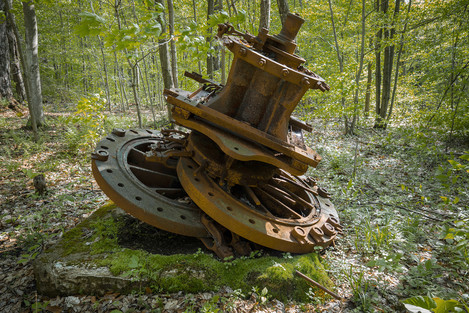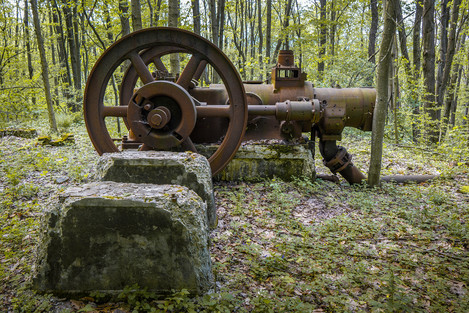Orphan Wells in a Dystopian Parkland

Gina Glover
Gina Glover trained in fine art at Chelsea College and in photography at the University of Westminster. She co-founded Photofusion Photography Centre in London. She is recipient of the Royal Photographic Society’s Hood Medal, the Medical Research Council’s Visions of Science Award (twice) and funding from Arts Council England. In 2016 she received a Wellcome Foundation funding for the project Life In Glass, using the scientific IVF photography of the Nobel Prize biologist Sir Robert Edwards. Her Metabolic Landscape exhibition was shown at the Fotofest Biennial, Houston, Texas and at venues in the UK.

Geof Rayner
Dr Geof Rayner is a social scientist working in public health and ecology and a former consultant to the WHO and European Commission. His book, Ecological Public Health, with Tim Lang, is published by Routledge.
Morag Paterson put me in touch with Gina after she came across her work on Instagram. Following on from an article from Joe Cornish back in March 2019 "A question of responsibility - Does being an outdoor photographer inevitably lead to environmentalism?, we have published a series of articles based around this topic and call out from Joe "If any of this resonates for you, if you want to share your ideas or suggestions, or feel you could write or contribute a piece on what we as a community can do collectively to help the causes of landscape, ecosystems and the wild world then please do contact Tim".
Gina's work on 'The Hydrocarbon Forest' project in collaboration with Geof Rayner, resonated with this topic. We got in touch to find out more about this project, the background and impact. Photographs: Gina Glover and text: Dr Geof Rayner
Forests are the ‘lungs’ of our land, purifying the air and giving fresh strength to our people. ~ Pres. Franklin D. Roosevelt, Statement on receipt of the award of the Schlich Forestry Medal, 9 January 1935.1
What we think about forests informs how we see them. The roots of our perception are lodged in culture and laid down in our upbringing. As we develop as adults, our knowledge can be enhanced by practical, scientific, philosophical, even poetic understandings of forest ecology. Added to this, and perhaps best of all, we can experience the forest by the simple and immersive pleasure of merely walking through them. This project investigates the forest, to be more precise, one specific forest, this forming part of an on-going photographic project on energy and the energy transition. In beginning with the above quotation from US President Franklin Roosevelt, we come to see how this positive promise of the forest – acting as the ‘lungs’ of the land - was almost entirely frustrated, even reversed.
Any of us – perhaps all of us – can instantly recall stories and songs of big and bad wolves and woodland picnics involving teddy bears (the ‘teddy’ being derived from bear hunter Theodore (Ted) Theodore Roosevelt, a US president and creator of the first US national parks.) The darker toned forest stories usually have European origins. Grimm’s classic Hansel and Gretel tells of two hungry, abandoned children lost in an entangled forest. Entering a clearing they encounter a sweet – indeed edible - forest cottage. It is not what it seems and they quickly come to realise that it is a honey trap set by a murderous witch.



